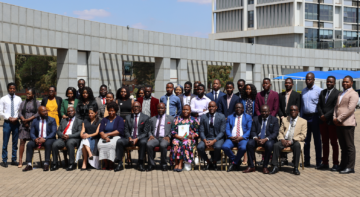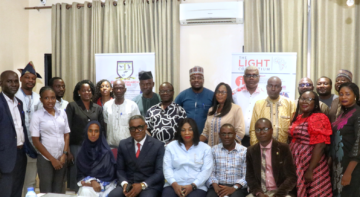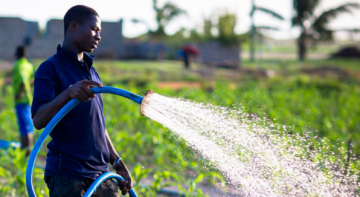Blogs

There are gender disparities in tuberculosis (TB) patient notifications – with men being more likely to be diagnosed with TB than women worldwide. According to the World Health Organization (WHO), in 2020, an estimated 10 million people fell ill with TB worldwide – 5.6 million men, 3.3 million women and 1.1 million children. Data is emerging on the gender disparities in the prevalence and treatment of TB, with studies alluding to inequalities in sociocultural status as contributing factors. A 2018 study by R. Duarte et al. on TB social determinants asserts that socioeconomic determinants affect the degree of exposure, risk behaviours and access to health care. The link between non-communicable conditions and TB is becoming apparent, which calls for more holistic and coordinated strategies and interventions to tackle the two issues.
The Leaving no-one behInd: transforming Gendered pathways to Health for TB (LIGHT) consortium is a cross-disciplinary global health research programme funded with aid from the UK government, led by the Liverpool School of Tropical Medicine (LSTM), working with partners in Kenya, Malawi, Nigeria, Uganda and the UK: African Institute for Development Policy (AFIDEP), Kenya and Malawi; Zankli Research Center – Bingham University (ZRC), Nigeria; Malawi-Liverpool-Wellcome Trust Clinical Research Programme (MLW), Malawi; Respiratory Society of Kenya (ReSOK), Kenya; Makerere University Lung Institute (MLI), Uganda; and the London School of Hygiene and Tropical Medicine (LSHTM), UK. The LIGHT programme works with decision-makers in Nigeria, Malawi, Kenya and Uganda to provide evidence on how they can enhance male access to quality TB healthcare. Gender-sensitive approaches in TB case finding, management and treatment can improve health outcomes and reduce transmission to other vulnerable populations in the community, including women and children.
Uganda is one of the 30 high TB/HIV burden countries. According to WHO, the TB prevalence in Uganda is 253 TB cases per 100,000 population which is higher than previously reported. Additionally, the burden of non-communicable diseases (NCDs) in Uganda is mounting in prevalence and causing further strain on the already fragile healthcare system.
As part of the LIGHT programme, AFIDEP, in partnership with MLI, hosted a five-day training workshop on evidence-informed decision-making (EIDM) in Entebbe, Uganda. The training, 29 August 2022 – 2 September 2022, sought to enhance participants’ research skills and demonstrate how they can maximise research uptake and policy engagement.
The training convened 17 mid- and senior-level TB programme personnel with the capacity to influence TB policies from Uganda’s National Tuberculosis and Leprosy Programme (NTLP), the non-communicable diseases programme and the MLI. The institutions selected participants to build their capacity in evidence use and policy formulation as they champion more holistic, inclusive, and person-centred approaches to accelerate efforts in controlling the TB epidemic and NCDs.
The training facilitators organised the participants into groups that focused on TB and NCD issues of interest in the context of Uganda. The facilitator guided the groups to synthesise evidence key to policy brief formulation through accessing, appraising, synthesising and packaging the evidence. Participants’ topics of interest included increasing male-focused TB programmes in Uganda, improving TB symptom screening, introducing a policy on early screening for NCDs, and improving leprosy funding.
Participants found the training practical and useful for their day-to-day work. Some participants had no prior experience developing policy briefs but were in the early stages of creating one.
« The training was timely, helped the participants grasp what a policy brief is, and gave them insight on formulation, packaging and delivery, » Dr Frank Mugabe Rwabinumi, Principal Medical Officer at the Ministry of Health Uganda – Non-Communicable Diseases Department shared how the training has been valuable. See his testimonial below:
AFIDEP conducted the EIDM training in partnership with MLI. Dr Bruce Kirenga, Director of the MLI, reiterated how critical the training was. He added that follow-up pieces of training are needed to include individuals that could not take part in this workshop and, more significantly, customised training for the senior-level TB programme personnel.
In attendance was Dr Stavia Turyahabwe, Programme Manager, National TB and Leprosy Programme, who noted the importance of the workshop, stating the training would help the TB programme ensure that policies are based on evidence. See her testimonial below:
Evidence-Informed Decision-Making (EIDM) is a process where high-quality evidence from research, local data, and professional experiences is synthesised, disseminated, and applied to decision-making in policy and practice. EIDM advocates for a push for the use of evidence in formulating and implementing policies, programmes, and practices for effective and equitable allocation of resources and formulation of cost-effective interventions.
Related Posts





